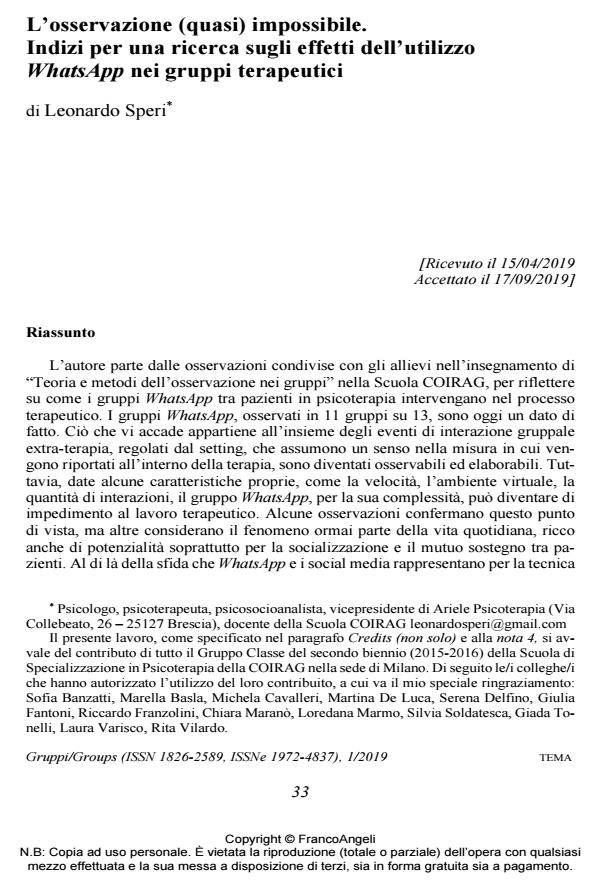The (almost) impossible observation. Clues for an investigation of the effects of Whatsapp’s use on therapeutic groups
Journal title GRUPPI
Author/s Leonardo Speri
Publishing Year 2019 Issue 2019/1
Language Italian Pages 24 P. 33-56 File size 235 KB
DOI 10.3280/GRU2019-001004
DOI is like a bar code for intellectual property: to have more infomation
click here
Below, you can see the article first page
If you want to buy this article in PDF format, you can do it, following the instructions to buy download credits

FrancoAngeli is member of Publishers International Linking Association, Inc (PILA), a not-for-profit association which run the CrossRef service enabling links to and from online scholarly content.
The author starts from the observations shared with his students as part of the "Theory and methods of groupsobservation" class at the COIRAG School, to re-flect on how the use of WhatsApp groups among psychotherapy patients inter-venes in the therapeutic process. The WhatsApp groups, observed in 11 groups out of 13, are a reality of the day. What happens within them belongs to the set of ex-tra-therapy group interactions, regulated by setting, which take on meaning to the extent that they are reported within therapy, and which have become observable and can be processed. However, given some of its characteristics, such as speed, the virtual environment, the quantity of interactions, the WhatsApp group, due to its complexity, can become an impediment to therapeutic work. Some observa-tions confirm this point of view, but others consider the phenomenon to be part of everyday life, rich in potential for socialization and mutual support among pa-tients. Beyond the challenges WhatsApp and social media pose to psychothera-peutic work, the author wonders whether they also have a more profound impact on models of social interaction and on the structure of the subject: a social and individual change that cannot be ignored.
Keywords: Group psychotherapy, Setting, Social media, Observation, WhatsApp, Psycho-socioanalysis.
Leonardo Speri, L’osservazione (quasi) impossibile. Indizi per una ricerca sugli effetti dell’utilizzo WhatsApp nei gruppi terapeutici in "GRUPPI" 1/2019, pp 33-56, DOI: 10.3280/GRU2019-001004